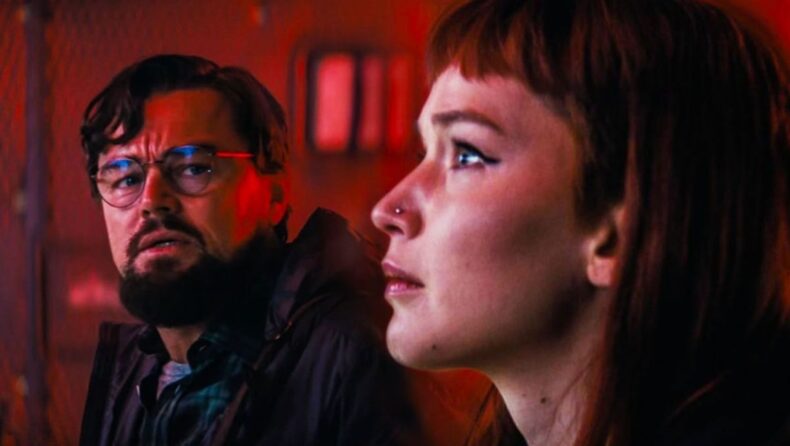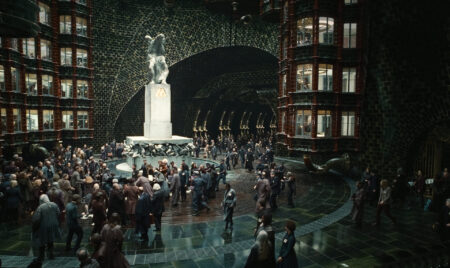- Netflix’s Don’t Look Up has an embedded message for its audience on climate change.
- Netflix’s Don’t Look Up successfully critiques the banality of the Post-Modern world.
Adam McKay‘s recent Don’t Look Up gathers a lot of interest worldwide for the embedded message that the film tries to give the audience. It talks about climate change on a massive scale. The banality of a post-modern human mind to take such issues seriously.
It also reveals the effect of the pop-culture. The nefarious attitude towards nature on a large scale. The title, which says “Don’t look up”, references the reaction of the lawmakers, public, scientists, and policy-makers towards the impending world-killing comet.
It directly attacks the ignorance of the world leaders, money-mongers. The media for not paying much attention to a severe issue requiring immediate attention.
Besides, the film is also a satire on the US as McKay cleverly handles his plot in exposing the wishy-washy nature of the country. It ponders over the denial of acknowledging climate change. As a matter of concern through characters played by Meryl Streep and Jonah Hill.
They appear as a ‘powerful’ mother-son duo on the screen. They use their acquired knowledge faultily. Meryl Streep’s character Janie Orlean is the President of the US. She dares to appoint her arrogance. And disinterested son as the White House Chief, Jason Orlean, played by Jason Hill.
The tech mogul played by Mark Rylance exposes the overconfidence and delusion of the techno-world. That often guarantees to save humanity from all kinds of evil possible to exist.
The Climate Change Discourse in the film and the Conflicts of Opinion
There is a sizeable difference of opinion regarding the film’s concern with climate change. Some appreciate Adam McKay’s direction to be quintessential and loaded with healthy doses of dark humor. Witty dialogues between the characters.
On the other hand, some believe that the film was too blatant. Armond White writes in The National Review that “Don’t Look Up is Netflix’s evasive. Misstated excuse for political satire that fails very badly. Because writer-director Adam McKay doesn’t grasp his political prejudices”.
A Twitter opinion says that the movie’s ending. Which shows an indigenous person on the hilltop as the much-feared comet is destroying the earth. It is somewhat faulty. She says that there was no mention of indigenous people’s contribution to protecting the planet. And shows that one person on the hilltop that too towards the end. It was like disrespecting their wholesome contribution.
Climate change is a burning issue. McKay’s Don’t Look Up attempts to give this message to the seemingly oblivious consumers. It is lauded for its courage and critiqued not to have done enough to do full justice to the challenging environmental disaster.
The threat of Global Climate Change- Nature versus Capitalism
Don’t Look Up successfully highlights consumer culture. The harsh effects of social media and pop culture, and capitalism’s escalating phenomena. It is deeply disturbing to watch the callousness of people. The sheer ignorance meted by the high and mighty of the world.
In an interview, the director Adam McKay explains that it was under the influence of the book The Uninhabitable Earth by David Wallace Wells. Which served him as an eye-opener. The book also plays into the plotline of his film Don’t Look Up. It is intriguing to note that the essence of McKay’s film lies in the fact. That it is a deep mediation also on the ever-growing ongoing war between Nature and Capitalism.
It seems that the booming movie business is the only way out left now to alert its consumers. That is how real climate change is and is certainly on what Trump would call a ‘hoax’.
Published By: Khushboo Mehta
Edited By: Subbuthai Padma













